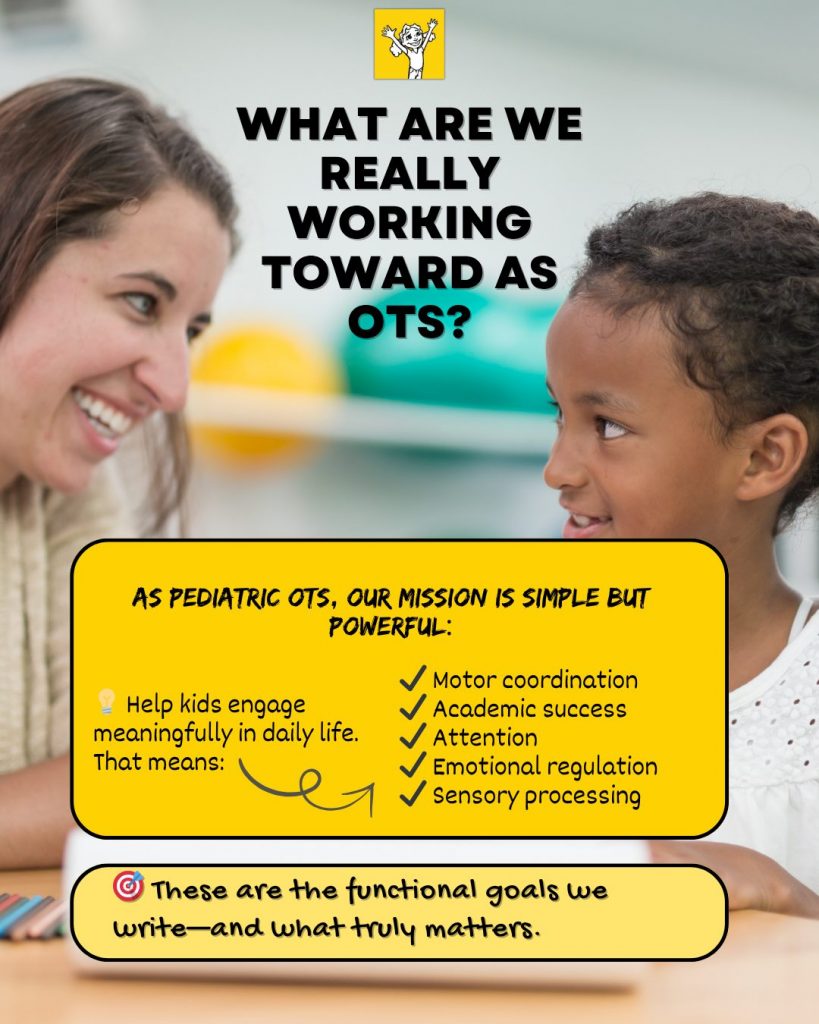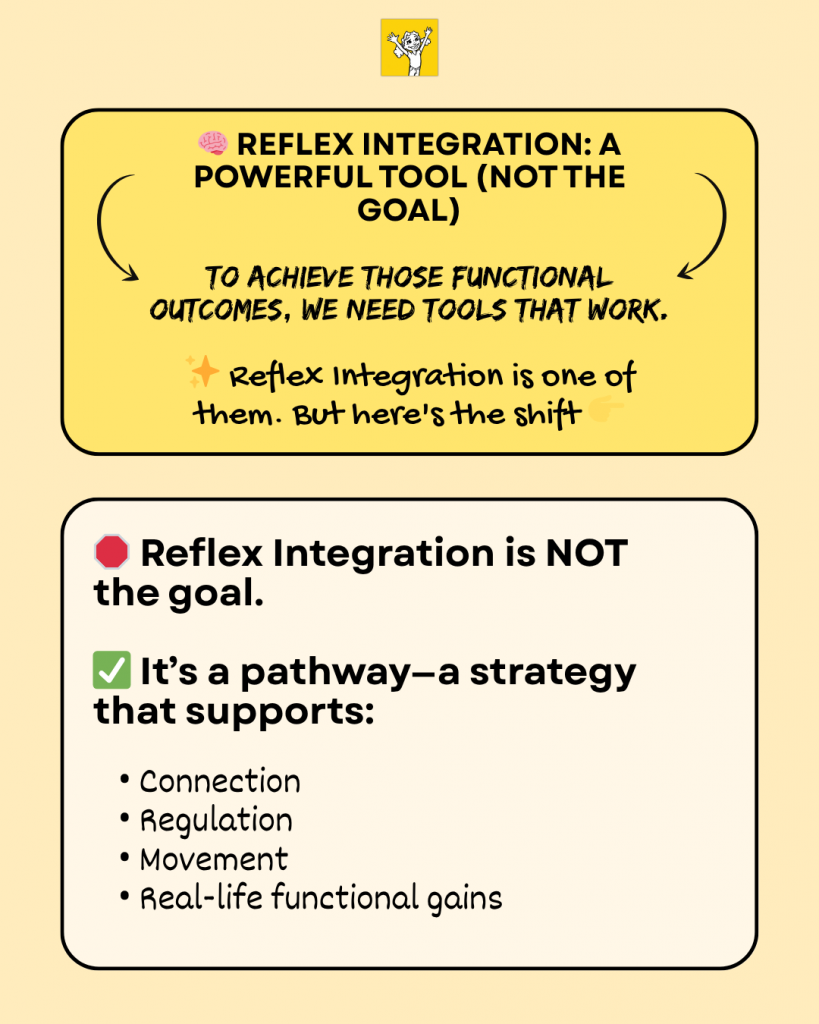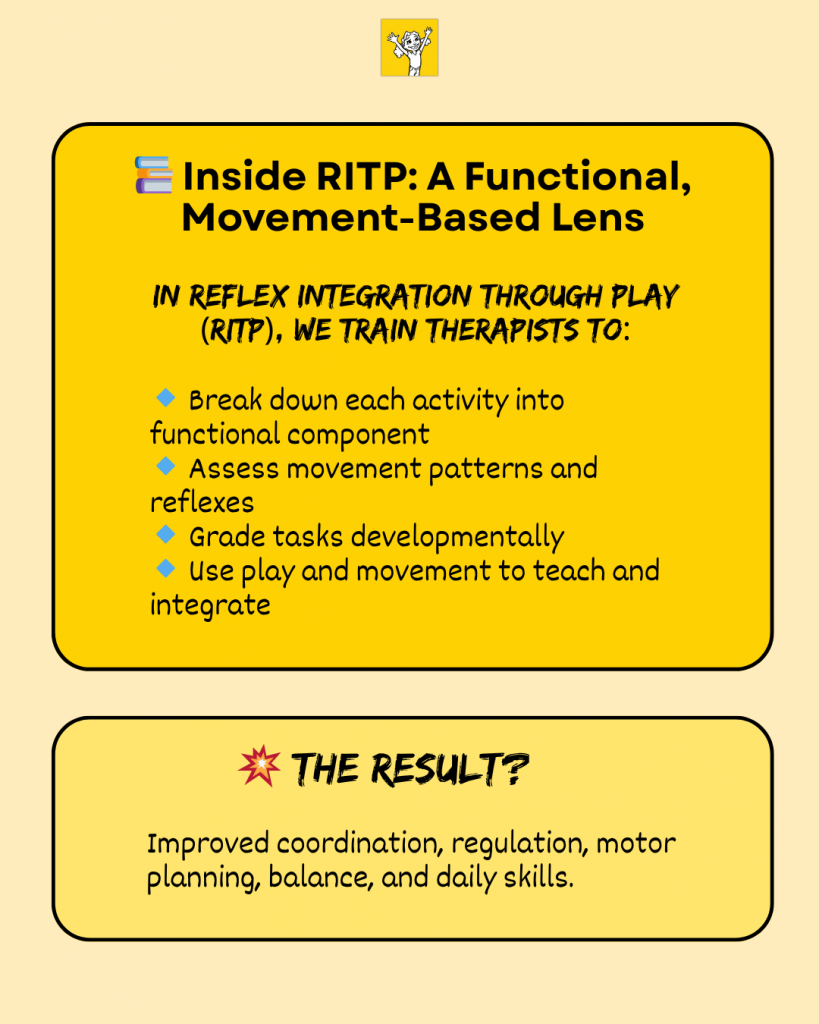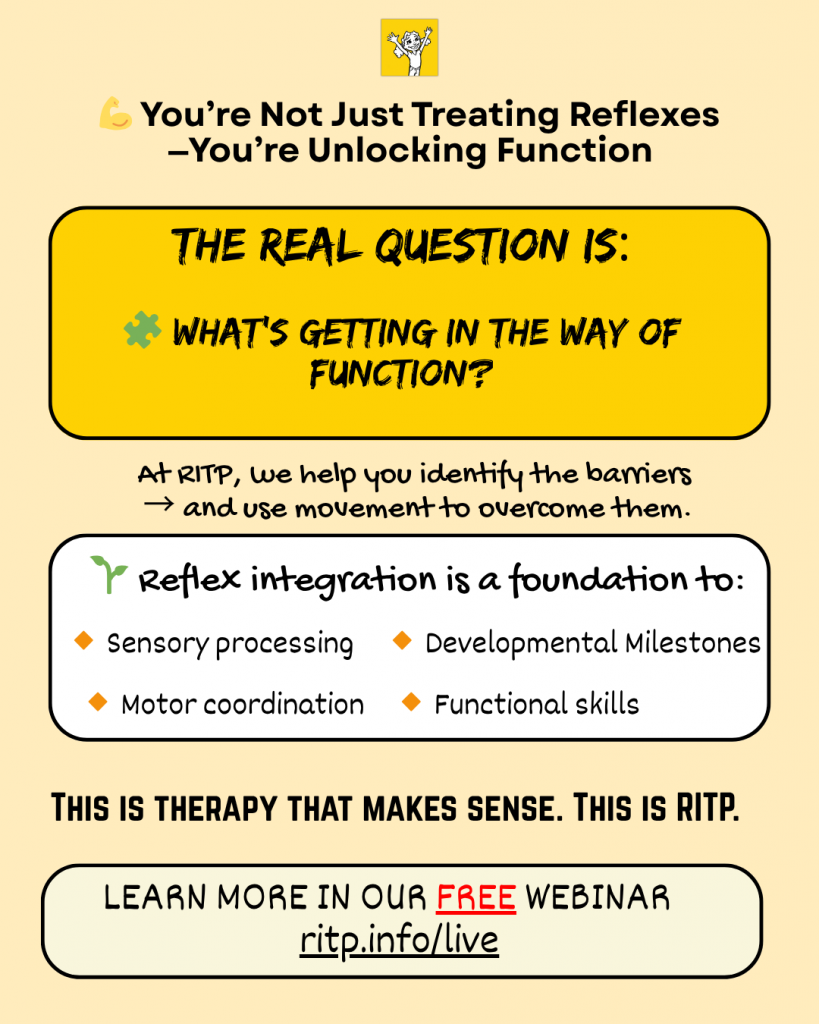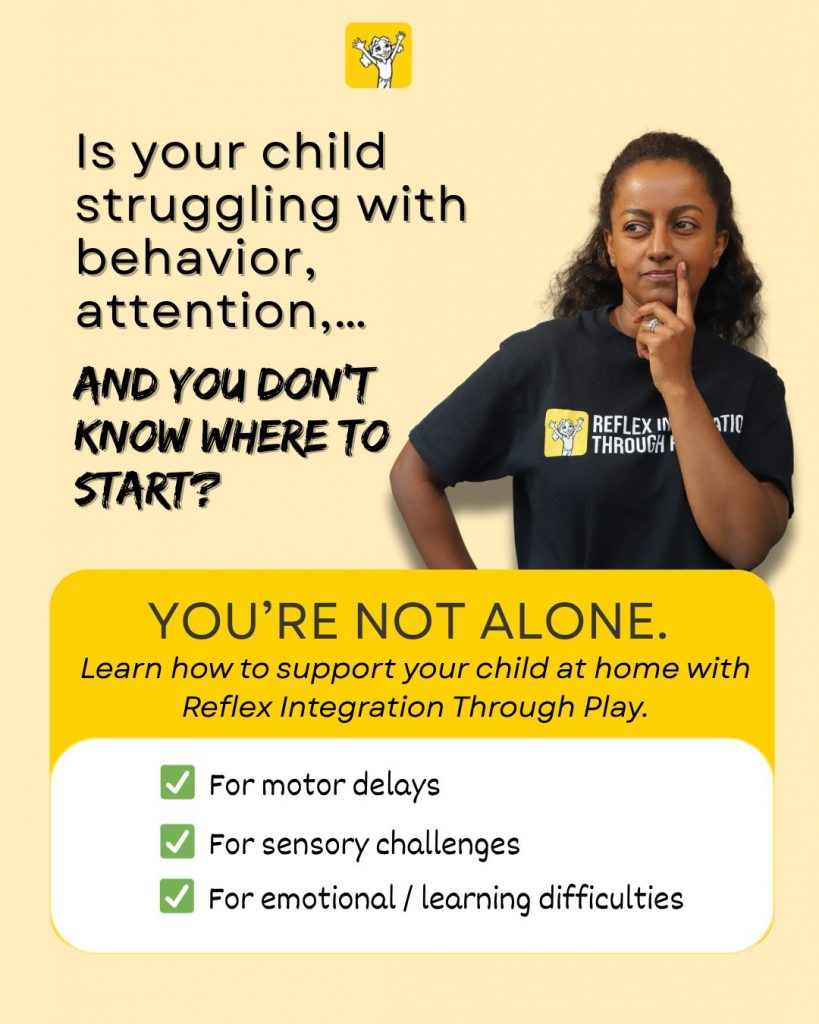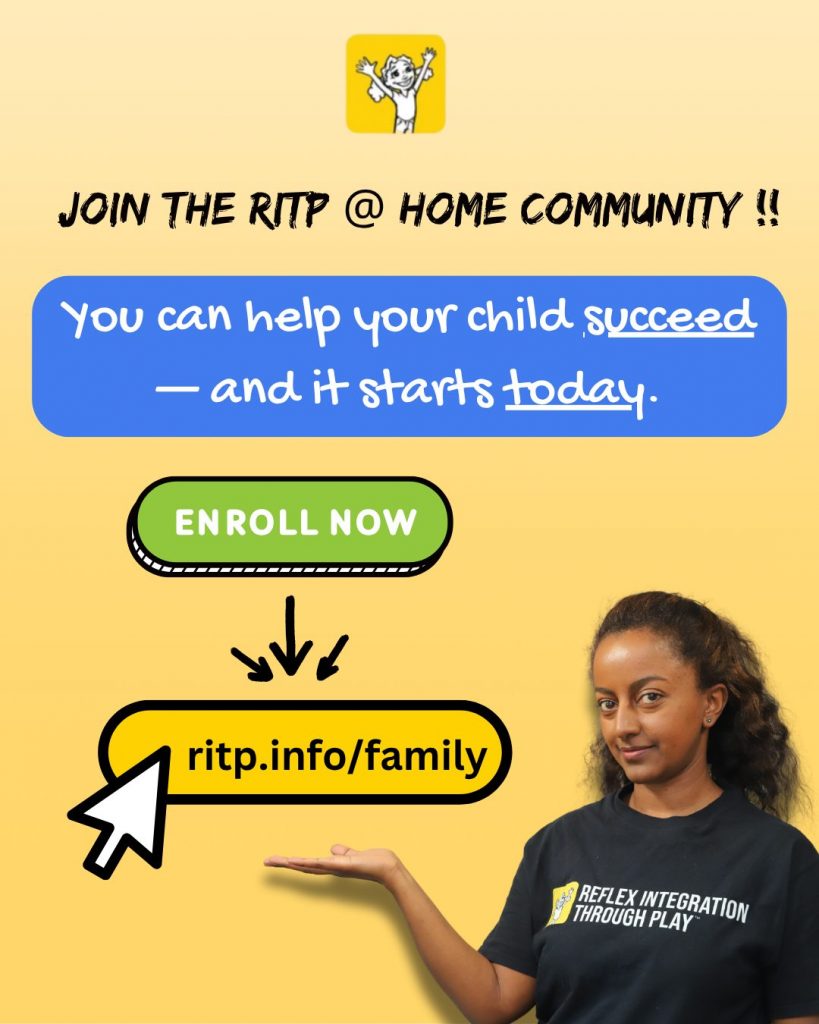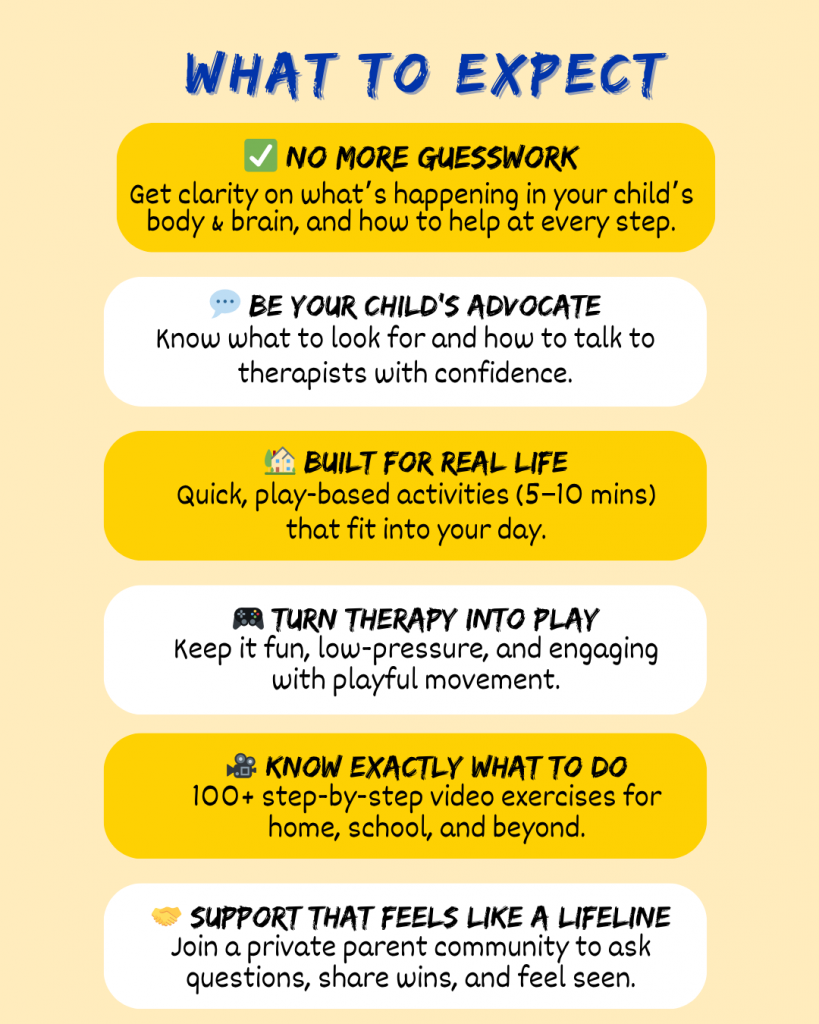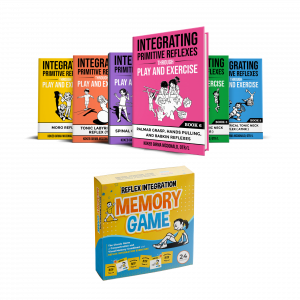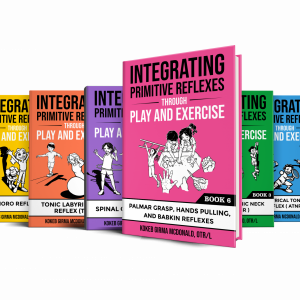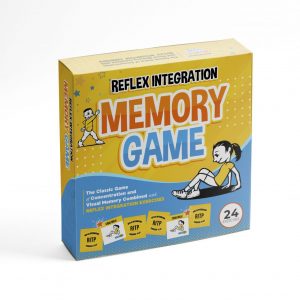When it comes to screening children, checking for retained reflexes is a great place to start—but it’s not the whole picture.
In this episode of the RITP Podcast, Kokeb McDonald shares highlights from a recent live Q&A call inside the RITP Certification Program, where practitioners gathered to talk through a more holistic approach to pediatric screening.
Kokeb breaks down the three core areas every therapist should be looking at in addition to reflexes:
• Functional movement patterns
• Developmental milestones
• Communication and connection
She also shares how these three categories overlap, and why assessing them together can lead to more informed, effective, and individualized treatment plans.
Let’s dive into a few of the key takeaways:
1. Reflex Pattern Screening: What Are You Really Seeing?
We often hear: “I checked for ATNR. I don’t see it.”
But the question isn’t just whether a reflex shows up in isolation—it’s how it’s integrated across movement, behavior, and transitions.
Kokeb walks through how to go beyond a simple yes/no checklist and begin looking for patterns:
• Are movements fluid or choppy?
• Are both sides of the body being used?
• Are children compensating to achieve a motor goal?
This kind of analysis gives us a deeper understanding of what’s happening in the nervous system and opens the door to more targeted support.
2. Functional Movement Patterns: Transitions Tell a Story
From rolling and crawling to squatting and climbing, functional transitions give us real-world insight into how a child navigates their body in space.
These patterns often show us more than isolated tests can.
Kokeb emphasizes watching children in motion—how they get up from the floor, how they shift weight, how they alternate sides.
When functional transitions are missing or awkward, it’s a sign that deeper foundational pieces (like reflex integration and core stability) may still need support.
3. Developmental Milestones: The Foundation Beneath It All
Sometimes, a child isn’t regressing—they simply never hit a key developmental milestone.
Whether it’s tummy time, reciprocal crawling, or early communication, every milestone builds the scaffolding for what comes next. When we skip steps, later skills can feel shaky or uncoordinated.
Kokeb reminds us to slow down, zoom out, and ask:
“Where might this child have jumped ahead too soon?”
And how can we circle back to strengthen that base?
4. Communication + Connection: A Missing Link in Many Screens
Finally, we can’t forget the emotional and relational side of screening.
Is the child able to co-regulate with a trusted adult?
Can they express needs with words, gestures, or eye contact?
Are they showing signs of connection or disconnection?
Kokeb explains how communication is a window into the nervous system—and how emotional safety is foundational for any therapeutic progress.
Bringing It All Together
When we zoom out and assess reflexes in context—alongside movement, milestones, and connection—we’re no longer just checking boxes. We’re seeing the whole child.
Whether you’re a seasoned therapist or new to this work, this episode is a valuable reminder that meaningful support starts with meaningful observation.
Looking to Go Deeper?
This episode offers just a glimpse into the kind of practical, relationship-centered learning we explore inside the RITP Certification Program.
If you’re a therapist, educator, or caregiver ready to:
• Strengthen your understanding of reflex integration
• Build a more holistic screening process
• Create treatment plans rooted in regulation, not just checklists
• Support children with more confidence and clarity
Then this work is for you.
Because it’s not just about knowing what to do—it’s about how we observe, connect, and respond in real time.
🎧 Tune in to Episode 25 now for a fresh perspective, real-world insights, and a deeper look at the “why” behind effective pediatric therapy.
And if you’re ready to take the next step, check out our certification and course offerings here: https://integratingreflexes.com/all-courses
Let’s grow together—with clarity, compassion, and the tools that truly make a difference.
Overwhelmed by complex treatment plans?
Join us and discover a proven system that works!
Parents: Are you tired of daily struggles with focus and attention, homework meltdowns, or motor delays?
The RITP Family Bundle helps kids move better, focus longer, and feel calmer — all through simple, play-based exercises that fit into real life.
Ever tell yourself, ‘I’ll stay calm today!’ but still snapped before breakfast? If so, you’re not alone!
We can help you learn how to show up calm, steady, and ready to co-regulate—even when things get hard.
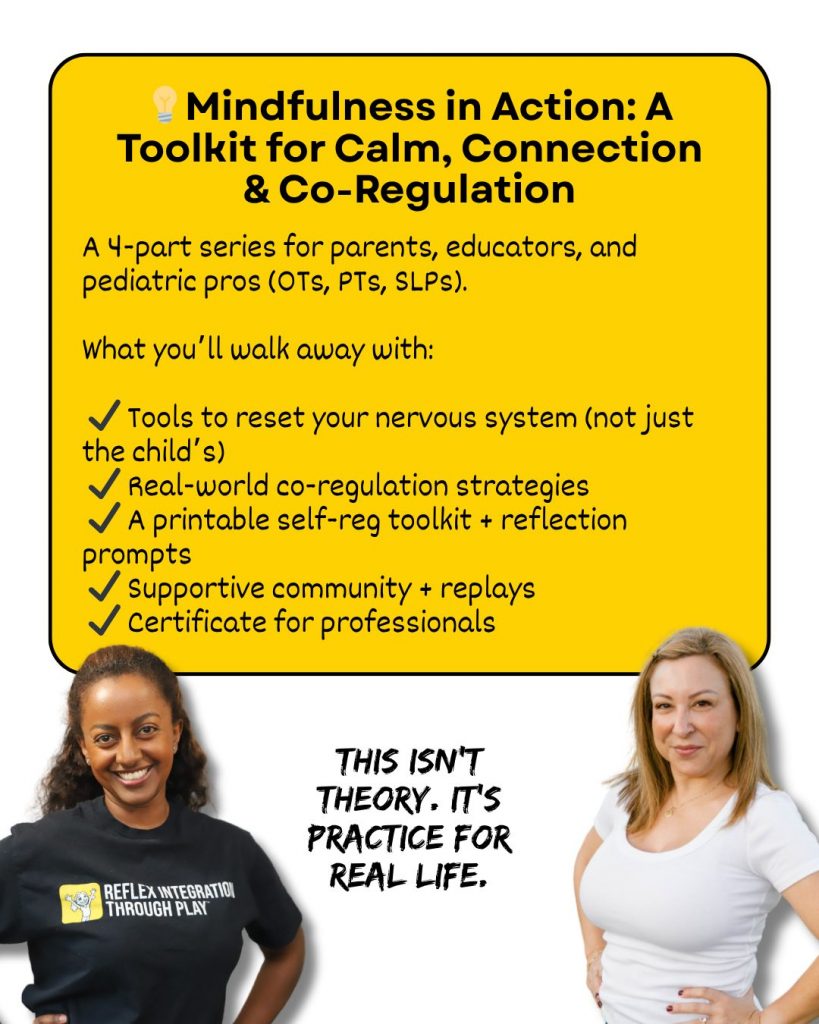
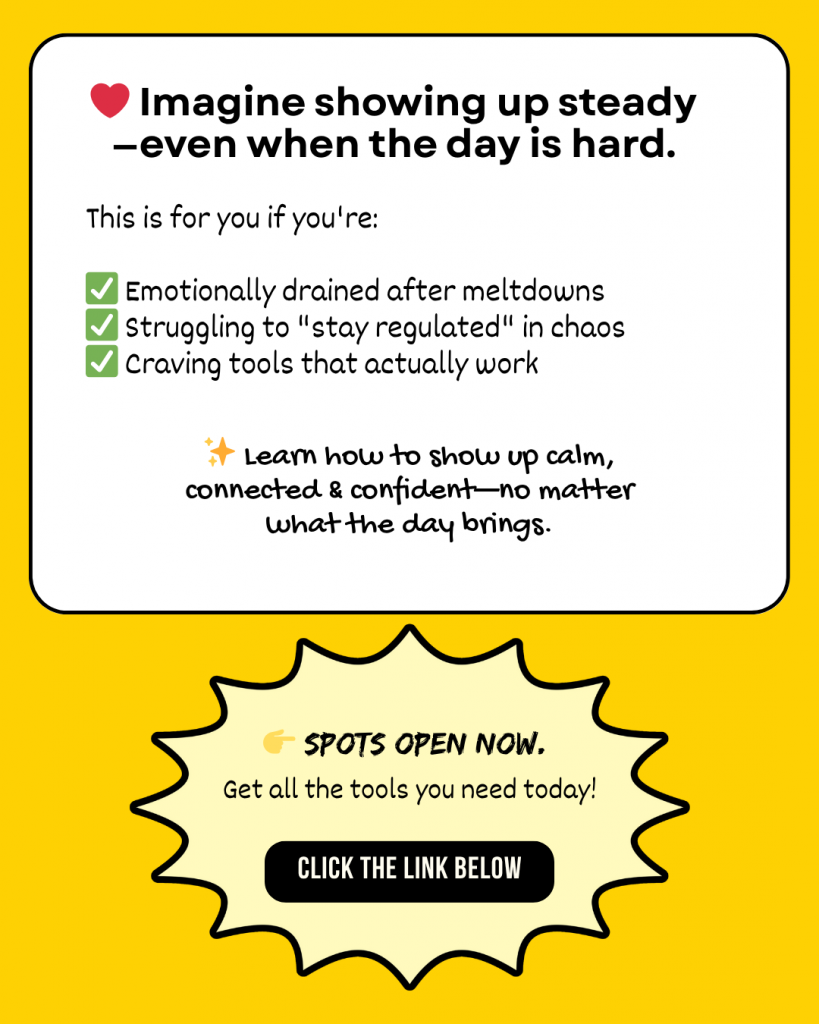
Parents, educators, and pediatric professionals do emotional labor every day—whether it’s calming a meltdown, guiding a classroom, or supporting clients in therapy. This 4-part series is for you—the grown-ups behind the regulation. It’s designed to help you stay calm, centered, and confident, even during tough moments.
For parents, educators, and pediatric professionals who support children through big emotions and challenging moments.

